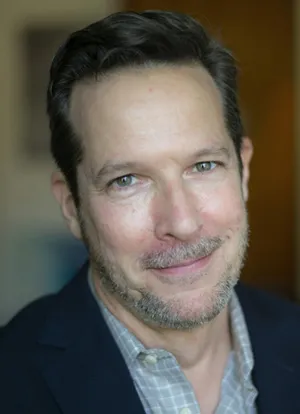Q&A with New Associate Provost Jean Vincent-Blanchard

Associate Provost of Academic Programs Jean Vincent-Blanchard
The new associate provost of academic programs, Professor of French Studies Jean-Vincent Blanchard is a writer and specialist in early modern literature and culture.
His teaching and research include the philosophy and anthropology of literature (“A History of the Five Senses”) and the medical humanities (“Literature and Medicine”). It all started, he says, with a great literature class.
In a recent interview with the Swarthmore Bulletin, Blanchard discusses his interest in French literature and his recent book, At the Edge of the World.
You moved a lot as a child; in what ways did those experiences inform who you are today?
My family left Canada when I was a child, and we then traveled from country to country, mostly around the Mediterranean—my father was an engineer. Our first stop was coastal Turkey; since then, I’ve always loved the seaside, especially when a blinding sun gives the scenery an abstract quality. Moving from school to school was difficult, however, and it makes me sympathetic toward the students who describe the social and cultural shock of arriving on campus. But I hasten to say that it’s an opportunity to become stronger. Adaptability while maintaining a strong sense of self is a most valuable skill in life.
How did you first become interested in French literature?
It happened in high school and, guess what, I hold an excellent French literature teacher responsible for that. Madame Vieville, if you read this, I salute you!
In what ways are you working to build cross-cultural understanding in your department, and what are some misconceptions students have about French studies?
One of the most widely spoken languages in the world, French continues to grow and evolve, especially in African countries. By focusing on the broad Francophone world, our program meets the needs of today’s students and is closely aligned with Black studies, Islamic studies, and global studies. Our approach is interdisciplinary. That said, I maintain that appreciating literature is important, especially in long forms such as the novel, and that such an appreciation requires an introduction by a competent teacher. Of course, you can fully enjoy a book by yourself, but I guarantee you that a great literature class will add a deeper, essential layer to the experience.
What led you write your latest book, At the Edge of the World, and what were some surprising things you learned during the process?
At the Edge of the World describes a formative and essential period in the history of the French Foreign Legion, from 1885 to about 1930. The Legion recruited foreign-born soldiers and used them to build France’s colonial empire. I soon discovered that the Legion was also a haven for marginal characters, folks who felt disillusioned in Europe after World War I and who very often had artistic dispositions—hence the number of excellent memoirs on which the book is based. Many Americans joined, too, including poet Alan Seeger. I tried to understand a contradiction, how some of these hired soldiers could be both highly sensitive and attracted to war.
What book has been the most influential in the past year?
Often, you reread a good book and you find a new aspect to appreciate; that never fails with Marcel Proust’s In Search of Lost Time. I highly recommend the excellent translation of the first volume by Lydia Davis, Swann’s Way. Reading Proust is the perfect antidote to the numbing effect of time and habit, because that is the very subject of the novel: making art the key to unlock affective memory, those precious moments when the past surges back in vivid sensory impressions.
Swarthmore is investing in its vibrant intellectual culture. Learn how at lifechanging.swarthmore.edu.



